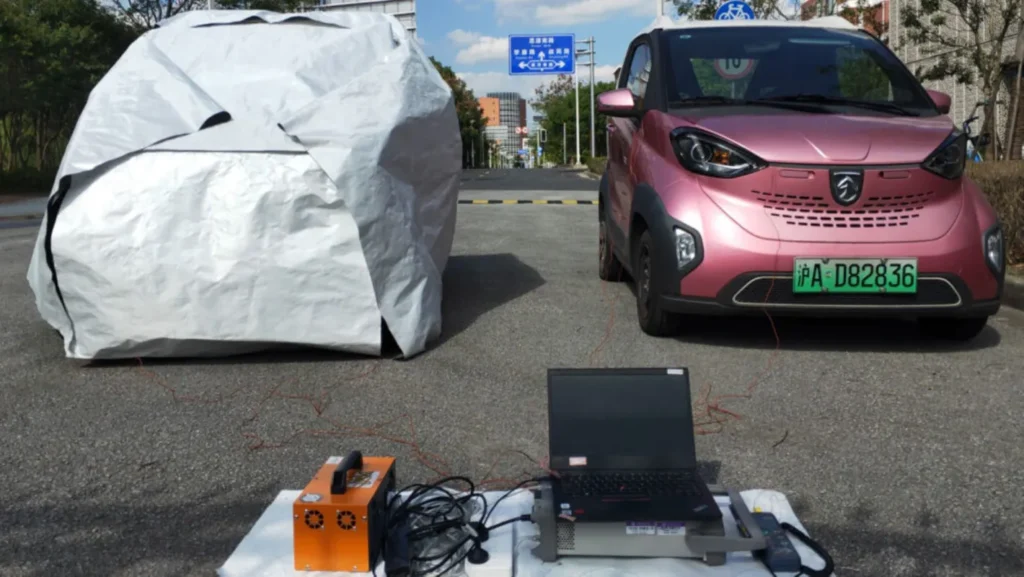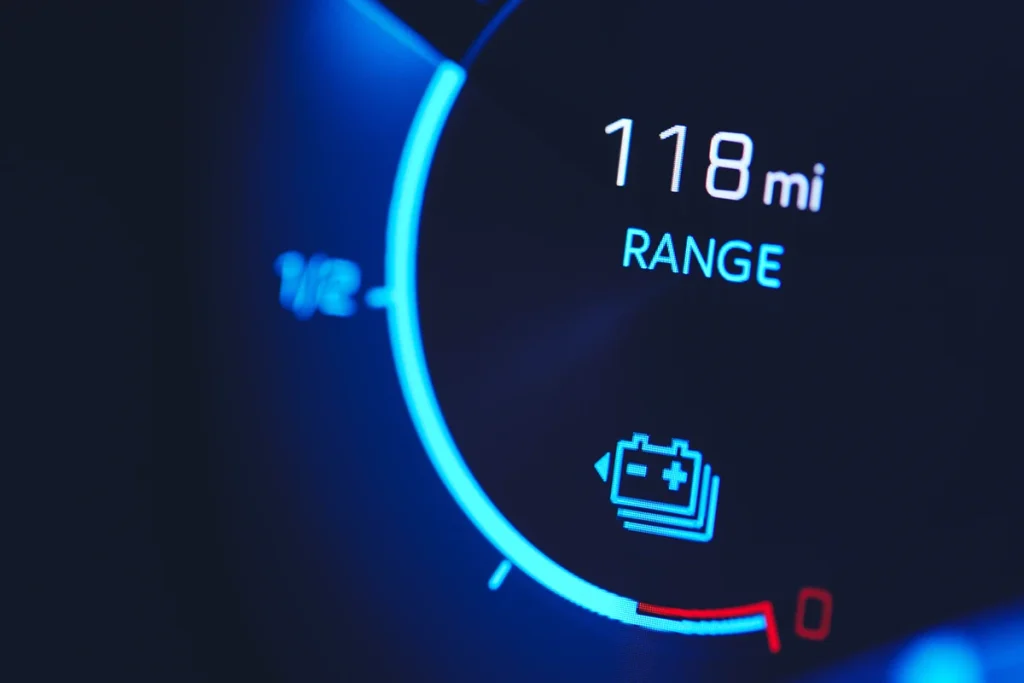The temperature fluctuations experienced by electric vehicles (EVs) while parked outside can harm their battery life. However, researchers have recently developed an innovative “thermal cloak” solution that aims to increase EV battery longevity without consuming additional energy.
Featured Image credit: thecooldown
Researchers from Shanghai Jiao Tong University in China have created a thermal cloak to help protect electric vehicle batteries when temperatures reach extreme levels. The thermal cloak helps to keep EVs cool in the summer and warm in the winter, stopping the battery from deteriorating.
Electric vehicles are more sensitive to extreme temperatures than traditional cars with internal combustion engines and must be kept in an optimal temperature range of 20-25 degrees Celsius for optimum performance. Anything outside of this range will negatively affect the performance of the battery pack.
Extremely hot temperatures can cause batteries to deteriorate more quickly, decreasing their performance, range, and total life expectancy. Conversely, cooler temperatures slow down the chemical reactions inside the battery, increasing the amount of time it takes to charge the vehicle, increasing the vehicle’s total energy consumption, and reducing the overall range.
The main goal of this creative cloak is to control the temperature, providing a cooling sensation during hot summers and making sure to stay warm during cold winters. The idea for this concept was inspired by the natural phenomenon of radiative cooling, which is seen when the Earth disperses electromagnetic energy into space through the clear atmosphere.
How it Works
Image credit: dailymail
According to Dr Kehang Cui, the study’s lead researcher, the EV thermal cloak is like a set of clothes for cars, buildings, and even spaceships that can keep them at an optimal temperature in any weather.
It consists of two layers: the outer layer reflects sunlight, and the inner layer traps heat, leading researchers to call it the Janus cloak, after the two-faced Roman God. The outer layer of the cloak emits energy in a long-wave infrared spectrum similar to how the Earth cools itself. This allows the car to stay cool and helps the planet as well. By reflecting the heat and sunlight during the day, the cloak keeps vehicles cool and releases stored heat when temperatures drop.
Testing showed that this thermal cloak could reduce the interior temperature of an electric car and increase it to 7°C above the ambient winter temperature. With electric cars becoming more popular in many countries, this thermal cloak could help boost adoption by providing insulation against extreme temperatures.
To address the issue of keeping electric vehicles from losing energy without external sources, the researchers employed a technique known as “photon recycling” during the winter. This method ensures that all the energy stored within the cloak is circulated between the vehicle and the cloak, thus preventing it from escaping into the environment.
The cloak is designed to be adjustable, but using thinner silica fibres for increased solar reflectivity was ruled out due to their fragility and incompatibility with existing production methods. The chosen materials make the cloak lightweight, durable, fire-resistant, and cost-effective. This innovative thermal cloak could be a game-changer for electric vehicle batteries, although it is not yet available on the market.
Electric vehicle owners are eagerly awaiting its release. If successful, the thermal cloak could revolutionize the electric vehicle industry by providing longer battery life and improved efficiency. Longer battery life would mean fewer stops to recharge and improved efficiency would translate to less energy wasted and lower emissions. This could be a game changer for EV technology and those looking to reduce their environmental footprint.
The future of EV technology is looking brighter than ever, and the thermal cloak could be the next major breakthrough in battery innovation. With any luck, this technology will be available to electric vehicle owners soon and revolutionize the way we think about EV battery life.


